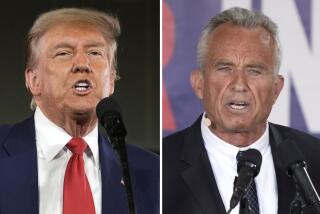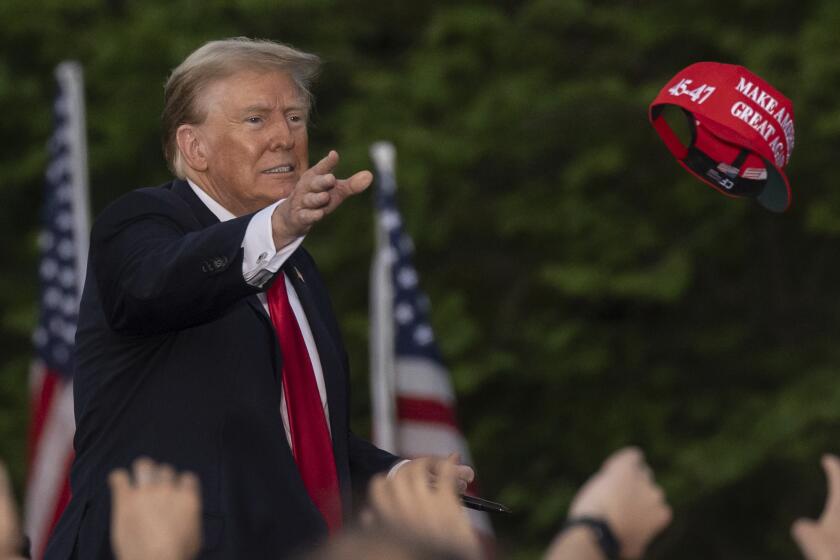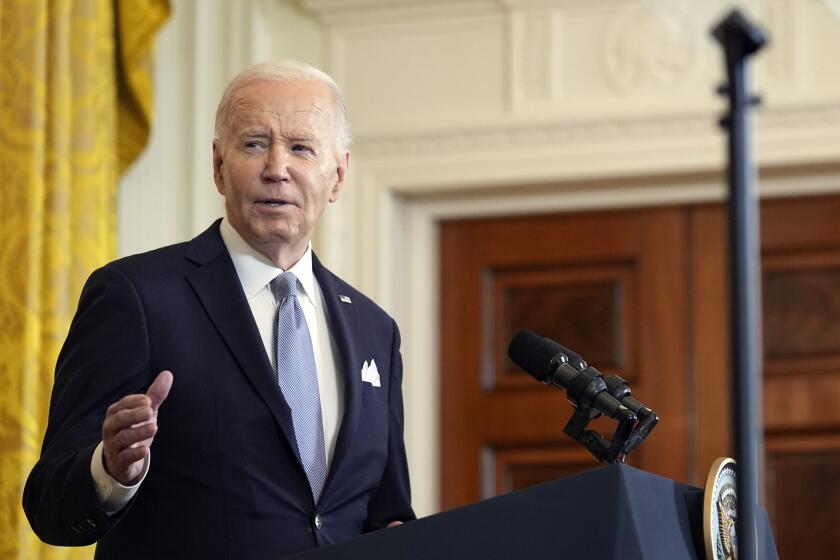Tax Cuts: the Silly Season
As the presidential campaign season kicks into gear, Congress has succumbed to the siren pull of tax cuts. The two parties have different strategies, but neither displays much sense.
Republicans are proposing huge tax cuts that are unlikely to pass Congress and are certain to be vetoed if they do; clearly the proposals are calculated to make the Democrats look stingy. Democrats will try to blunt this strategy with smaller, more narrowly targeted tax cut proposals. But it’s the wrong time for any tax cuts. The economy is healthy, so there’s no need for stimulants. And the surplus on which a cut would be built is an uncertain foundation. Five years ago, a deficit of nearly $200 billion was projected for 1999; now it’s a big surplus. There’s no such thing as an accurate 10-year prediction.
Republicans opened the bidding with two proposals, an $864-billion plan to cut income taxes 10% across the board and reduce the capital gains tax and an $800-billion package to slice 1% off the lowest income tax bracket. Both would be paid for from the anticipated $1-trillion surplus from non-Social Security tax revenue over the next 10 years. Secretary of the Treasury Lawrence Summers said the president would veto either one of the tax cuts. Democrats might have more luck with their 10-year cut of $250 billion, but the question again is, why do it?
Economists have grave doubts about both the size of the projected budget surpluses and the ability of the government to hold down spending. They also believe cutting taxes now, when the economy is strong, would actually be harmful.
The Congressional Budget Office earlier this month estimated that the government will accumulate nearly $1 trillion in non-Social Security surpluses over the next decade. It assumes that government spending over the next three years will be reduced by billions from current levels and then will hold steady until 2009. But already, billions are being added to the defense and highway budgets, making the fiscal year 2000 budget cap unattainable. The independent Center on Budget and Policy Priorities estimates that as much as 90% of the anticipated surpluses vanish under the more realistic assumption that spending over the next 10 years will stay even with inflation. That cuts the surplus to $112 billion, little of which would be available in the next five years. That would not pay for the tax cuts proposed by either party.
The economy, propelled by consumer spending, is growing at a rate that worries the Federal Reserve, which already raised the short-term interest rate to restrain growth. This is hardly the time to put more money into consumers’ hands to stimulate greater demand. Even targeted tax cuts have dubious economic value; they encourage tax avoidance and further complicate the labyrinthine U.S. tax law.
The one certain result would be that tax cuts would reduce the amount of money available for dealing with the country’s pressing need to paid down the national debt and put Social Security and Medicare on a sound financial footing. The political silly season is upon us, but rational economic policy should not become its victim.
(BEGIN TEXT OF INFOBOX / INFOGRAPHIC)
Changing 1999 Outlook
Below is the 1999 deficit/surplus as projected in each year since 1994.
*
Source: Office of Management and Budget
More to Read
Get the L.A. Times Politics newsletter
Deeply reported insights into legislation, politics and policy from Sacramento, Washington and beyond. In your inbox three times per week.
You may occasionally receive promotional content from the Los Angeles Times.






